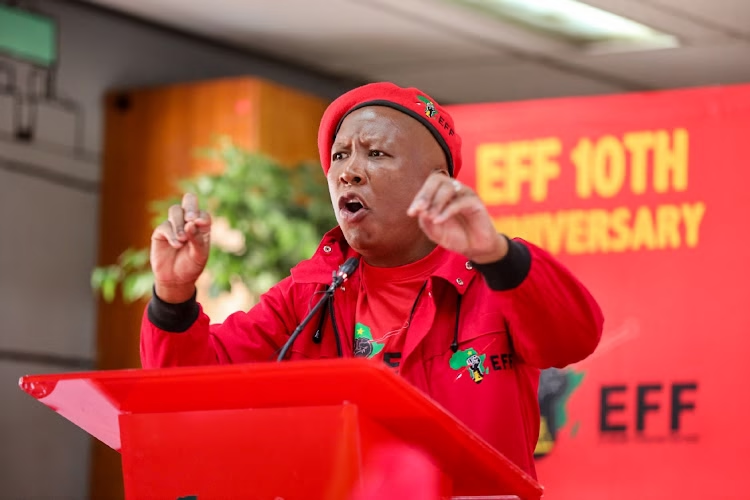Julius Malema Under Fire: Elon Musk Calls for Sanctions Over Controversial Rhetoric
Meta Description: Elon Musk labels Julius Malema an “international criminal” over “Kill the Boer” chants. Learn about the controversy and its implications here.
Introduction: Julius Malema’s Controversial Rhetoric Sparks Global Outrage
South African political firebrand Julius Malema is once again in the spotlight, this time for his controversial rhetoric, including the chant “Kill the Boer.” Elon Musk, the world’s richest man, has called for immediate sanctions against Malema, labeling him an “international criminal.”
This article explores the controversy, Musk’s intervention, and the broader implications for South Africa’s political landscape.
Elon Musk’s Call for Sanctions Against Malema
In a series of posts on X (formerly Twitter), Elon Musk directly addressed South African President Cyril Ramaphosa, questioning why Malema’s actions were being tolerated.
“Why do you allow this, @CyrilRamaphosa? This is a major political party in the South African parliament, and their leader is calling for the genocide of white people,” Musk wrote.
He later escalated his stance, demanding, “Immediate sanctions for Malema and declaration of him as an international criminal!”
For more on Elon Musk’s global influence, visit Tesla.
Malema’s Defense: Historical Context or Incitement?
Julius Malema, leader of the Economic Freedom Fighters (EFF), has defended his use of struggle-era songs like “Kill the Boer,” arguing they are part of South Africa’s history and not calls to violence.
In 2023, Malema stated, “I will never kill white people. Why should I kill them? They have done nothing to me.”
EFF spokesperson Sinawo Thambo dismissed Musk’s remarks, stating, “Elon Musk does not understand South African history. His comments are based on ignorance and a misinterpretation of our political discourse.”
South Africa’s Tense Political Climate
Musk’s call for sanctions comes at a tense moment for South Africa. Days earlier, the United States froze financial assistance to the country, citing concerns over its land expropriation policy and its lawsuit against Israel at the International Court of Justice.
South Africa’s Department of International Relations and Cooperation (DIRCO) accused the U.S. of acting on “misinformation and propaganda,” calling the move “disappointing.”
For more on U.S.-South Africa relations, visit U.S. Department of State.
Historical Controversies Surrounding Malema
The controversy over Malema’s rhetoric is not new. In 2022, the South African Human Rights Commission (SAHRC) ordered him to retract statements made at a Western Cape rally, warning that his remarks could violate anti-hate speech laws.
Malema’s inflammatory rhetoric has repeatedly drawn criticism, raising questions about the balance between free speech and incitement to violence.
For insights on South Africa’s human rights landscape, explore South African Human Rights Commission.
Implications for South Africa’s Political Future
The ongoing controversy highlights the challenges South Africa faces in addressing historical grievances while maintaining social cohesion. Key considerations include:
- Balancing Free Speech and Hate Speech: Ensuring that political discourse does not incite violence.
- Addressing Historical Injustices: Tackling issues like land reform without exacerbating racial tensions.
- Global Perception: Managing international relations amid domestic controversies.
Call to Action
The debate over Julius Malema’s rhetoric underscores the need for constructive dialogue and accountability in South Africa’s political landscape. As global citizens, we must advocate for policies that promote unity and address historical injustices without inciting division.
What steps do you think South Africa should take to address these challenges? Share your thoughts in the comments below or join the conversation on social media using the hashtag #SouthAfricaUnity.



